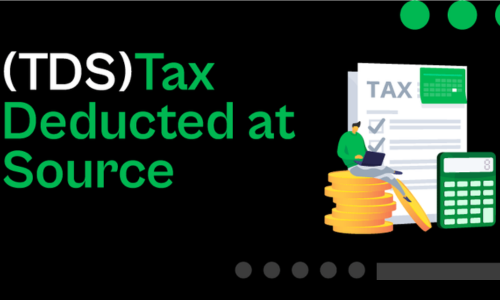Introduction
Starting April 1st, 2024, the way the Indian Income Tax Department handles refunds is changing. This update doesn’t just apply to people living in India—it also affects Non-Resident Indians (NRIs).
So, if you’re expecting a tax refund, especially as an NRI, here’s what you need to know and how to avoid delays—or losing your refund altogether.
Don’t let reading hold you back, Watch our video instead
What’s Changing?
From April 1, 2024, if:
-
You have any tax dues pending, or
-
You haven’t responded to a compliance notice (like a request for documents or clarification),
Your refund will not be processed.
This applies to everyone—whether you’re an Indian resident or an NRI.
In the past, small dues or issues were often overlooked or automatically adjusted by the system. But now, the Income Tax Department is being strict:
“No refund will be released until all your dues and compliance issues are cleared.”

Why This Change?
Earlier, the department allowed refunds to go through even when minor tax dues or notices were pending. But many people ignored those issues and still received large refunds.
Now, to prevent misuse, the department has tightened the rules. That means any unresolved issue—even a small one—can stop or delay your refund.
And once your refund is adjusted against an old tax due, getting that money back is very difficult.
Why NRIs Need to Be Extra Careful
This rule is especially important for NRIs. Why? Because NRIs often:
-
Sell property, stocks, or mutual funds in India
-
Have TDS (Tax Deducted at Source) automatically deducted—usually at high rates
Example:
Let’s say you sell a property in India for ₹5 crore. The buyer deducts 23% TDS, which is ₹1.15 crore.
But after calculating your actual capital gains, your real tax liability might be just 5%—say ₹25 lakh.
So now, you’re due a refund of ₹90 lakh.
But if there’s even a small pending issue—like a demand of ₹500 or an unanswered notice—your refund could be stuck.

What Can Go Wrong?
Here’s what can happen if you don’t take care of your tax profile:
-
Refunds Delayed: You may have to wait weeks or even months.
-
Refunds Held: The refund won’t be issued until everything is resolved.
-
Refunds Adjusted: The refund may be reduced or used to clear older dues—even if you didn’t know they existed.
There have been cases where people lost refunds worth ₹10 lakh, ₹30 lakh, or even ₹1 crore—just because of one small unresolved issue.
What Should NRIs Do Now?
If you’ve recently sold property, stocks, or are planning a major transaction this year, take action early.
Here’s a simple step-by-step checklist:
Step 1: Log in to the Income Tax Portal
-
Visit the Income Tax Portal and log in using your PAN and password
-
Make sure your contact details and bank information are up to date

Step 2: Check for Tax Demands
-
Go to: e-Proceedings → Outstanding Tax Demand
-
Even a small pending amount from past years can stop your refund
Step 3: Check for Pending Compliance
-
Look under notices for Sections like 139(9), 143(1), or 245
-
If there’s a pending task—like uploading a document or responding to a notice—complete it right away
Step 4: File Your Return With Care
When filing your ITR, especially after TDS has been deducted:
-
Attach documents like capital gains statements, sale agreements, and TDS certificates
-
Add a Tax Residency Certificate (TRC) if required
Step 5: Get Professional Help
-
If all this feels overwhelming, hire a CA or tax advisor.
-
You can even authorize them using Form 12BBA to act on your behalf.
Special Tip for NRIs Expecting Big Refunds
Many NRIs are expecting large refunds—₹20 lakh, ₹50 lakh, or even ₹1.5 crore—from property sales or capital gains.
If that’s you, don’t leave anything to chance.
Before filing your return:
-
Do a full check on the tax portal
-
Make sure everything is cleared
That small step could save you months of stress later.
Conclusion
This new refund rule isn’t just a small change. It’s a strict new policy that gives the Income Tax Department the power to block or adjust your refund if anything is pending in your account.
So, as an NRI, if you want to get your refund quickly and smoothly:
-
Pay all outstanding tax demands
-
Complete any compliance or documentation
-
File your return carefully and on time
